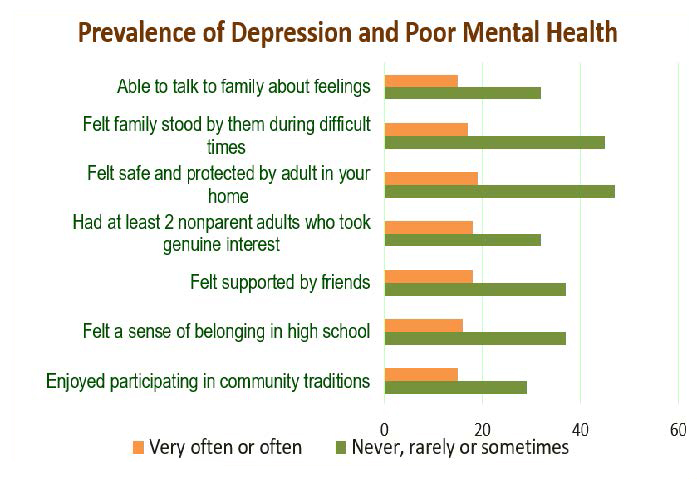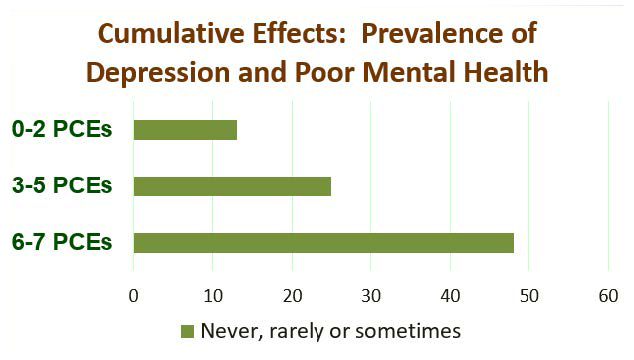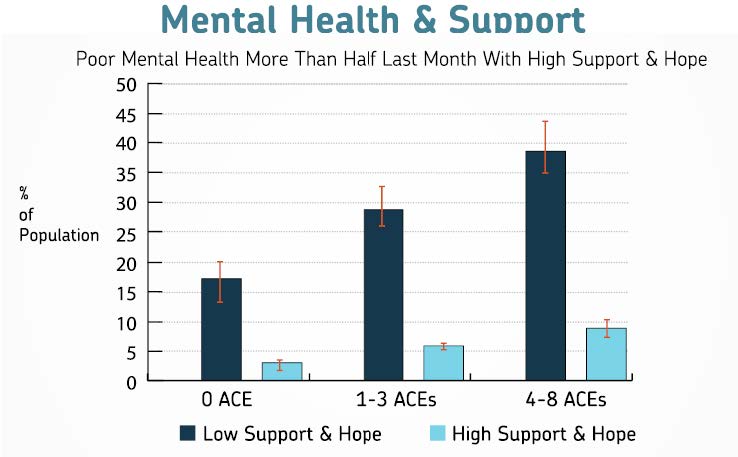Positive Childhood Experiences (PCEs)
In September 2019, lead researcher Dr. Christina Bethell released the results of a study of 6,188 adults at Johns Hopkins seeking to identify Positive Childhood Experiences (PCEs) that could buffer against the health effects of traumatic ones. A percentage of kids with high ACE scores do nevertheless grow up to have normal development and good adult emotional health. The researchers were looking to identify the factors that created a level of resiliency in these kids that helped them to thrive despite difficult childhoods.
The study determined there are 7 positive childhood experiences that can be statistically linked to good emotional and mental health in adults.
Even before researchers defined ACE’s and demonstrated the link between high ACE scores and lower high school graduation rates, increased mental health diagnoses, higher rates of incarceration, and other poor outcomes, there has been an enormous focus on decreasing adverse childhood experiences.
The PCEs study helps shape research moving in an additional direction: increasing positive childhood experiences to build resilience in kids who have experienced trauma, and those who may in the future. The relationship between PCEs in childhood and good mental health in adults is dose-responsive; the more PCEs a child gets, the better their adult mental health is likely to be.
Children with PCEs become adults who are able to seek social and emotional support. The 7 PCEs are:
- The ability to talk with family about feelings.
- The sense that family is supportive during difficult times.
- The enjoyment of participation in community traditions.
- Feeling a sense of belonging in high school.
- Feeling supported by friends.
- Having at least two non-parent adults who genuinely cared.
- Feeling safe and protected by an adult in the home.

Positive Childhood Experiences can Buffer Adversity.
Exciting new research by Dr. Christina Bethel has documented that seven types of Positive Childhood Experiences can help boost adult resilience. The green bars in the chart at left show that people reporting Positive Experiences were less likely to report adult depression or mental health issues.

Similar “Dose Effect” of Higher Positive Experiences.
Dr. Bethel’s research also demonstrated that there is a similar “dose effect” with Positive Childhood Experiences ( PCEs ): the more positive experiences that individuals reported the more likely they were to report few or no issues of adult mental health challenges.

Emotional Support makes a difference. Individuals
Reporting that they had high levels of emotional support also reported that they experienced less time lost due to mental health issues at every level of ACEs as indicated by the light blue bars in the chart above.
Building Community Boosts Resilience
Research in Washington State found that boosting engagement in community reduced the impact of ACEs at every level. Four types of community were found to be impactful:
- Emotional Support: Feeling social/emotional support and hope from another person
- Multiple Sources of Help: Two or more people who give concrete help when needed
- Reciprocity: Watching out for each other and doing favors for one another
- Social Bridging: Reaching outside the social circle to get help for family or friends